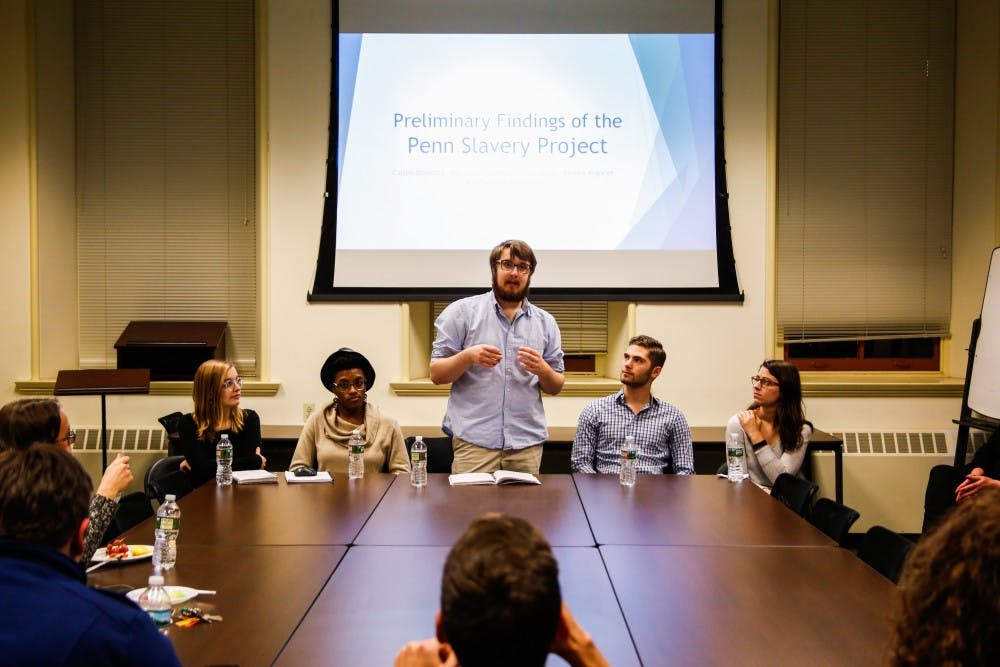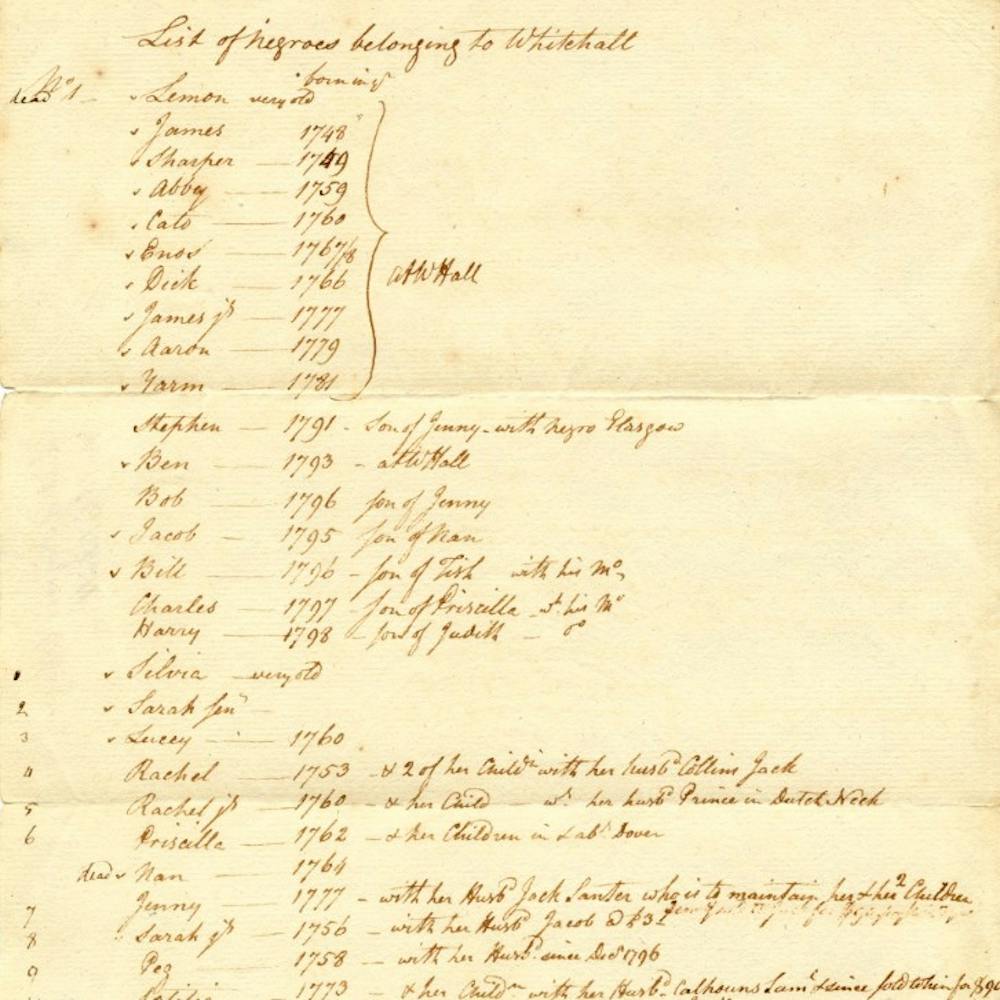
After student research surfaced in December exposing findings tying Penn's early trustees to the slave trade, the University formed a faculty working group to address the new research and delve into the University's ties to slavery.
University spokesperson Ron Ozio previously told The Philadelphia Tribune in 2017, "Penn has explored this issue several times over the past few decades and found no direct university involvement with slavery or the slave trade."
The group, which was announced on Jan. 23 by Penn President Amy Gutmann and Provost Wendell Pritchett, consists of Senior Vice President for Institutional Affairs and Chief Diversity Officer Joann Mitchell, History Professor and Director of Gender, Sexuality and Women’s Studies Kathleen Brown, Africana Studies Professor Heather Williams, and Law and Sociology Professor Dorothy Roberts. Pritchett serves as its chair.
"After meeting with the students to hear of their work firsthand, we agreed that the University would form a small working group to explore the matter further so that we might improve our community’s understanding of the impact and implications of slavery on Penn’s past and what it means for the present and the future," the announcement read. "Our intention is to seek the truth and acknowledge it, and to offer recommendations for any next steps."
In an emailed statement to The Daily Pennsylvanian, Pritchett, the group's chair, wrote that its purpose is to better "our understanding of Penn's connection to slavery and the implications of these findings."
Roberts and Williams did not respond to multiple requests for comment.
"Over the semester," the email read, "we will be continuing to work to understand Penn’s connection to slavery, and we will be soliciting advice from members of our community and others about how to disseminate, reflect upon, and act upon this greater understanding."
The student research group, otherwise known as the Penn Slavery Project, began last semester under the supervision of Brown and has continued into the Spring.

The undergraduates found that many of the University's founding trustees had substantial ties to the slave trade. Of the 126 total trustees at the time, the group examined 28 trustees. Of those 28, the group found that 20 had held slaves between 1769 and 1800.
"We aim to continue the rigorous and dispassionate examination of the past begun by a remarkable group of Penn students," Pritchett continued, "and our hope is that this work will advance our collective understanding of the place of slavery in Penn's history and lead to further reflections and campus-wide conversations about how that past shapes our present and our future."
"I don’t have anything to add to the statement from Provost Pritchett who is leading the working group," Mitchell wrote in an email.
Brown said the faculty group is currently looking into University resources that can be utilized moving forward, not just for this semester but for future years as well. She also said the group is thinking of how the research can be institutionally represented.
“Whether it will be a website or a class or outreach to the community, these are things that are on everybody’s minds,” Brown said.
Two weeks ago, according to Brown, the faculty group attended a presentation at the Graduate School of Eduction by History Professor Craig Wilder at the Massachusetts Institute of Technology.
Wilder, who is researching the connection between Ivy League institutions and slavery, spoke with the group about “institutional fear about reparations” and how it can sometimes get in the way of a school’s research.
Brown said her main goal for the faculty and student groups is the completion of the research and the avoidance of preoccupation with the consequences of the possible findings.
“With the students I’ve worked with and the Provost’s committee, the idea really is to do what institutions of higher education should do really well, which is to try to get as much information as we can, to shed as much light on what we can know about the past.”
Brown noted that the group does not yet have a consistent schedule, but that its members are in constant communication. She added that she is in touch with Pritchett on a weekly basis.
Member of the group and 2017 College graduate Matthew Palczynski said he feels the University's acknowledgement of its history with slavery is a step in the right direction.
He noted that the students were not informed after their meeting with top administrators that the investigative group had been formed.
"I've only heard through the DP that this thing exists," Palczynski said.
Brown said the research group, which is looking to expand as more students show interest, has ongoing meetings to figure out what else they want to unearth through their investigation.
She added that the group is interested in possibly examining the slave-owning trustees more closely, or even looking into 18th Century Southern students whose family wealth was heavily based in the slave trade.
“Based on what is known now,” Palczynski said, “I think it’s still premature to start offering scholarships or preferred action but I hope in the future once we start to get more names and we can track down the genealogies of the slaves, hopefully we’ll be able to do that.”
The Daily Pennsylvanian is an independent, student-run newspaper. Please consider making a donation to support the coverage that shapes the University. Your generosity ensures a future of strong journalism at Penn.
Donate



